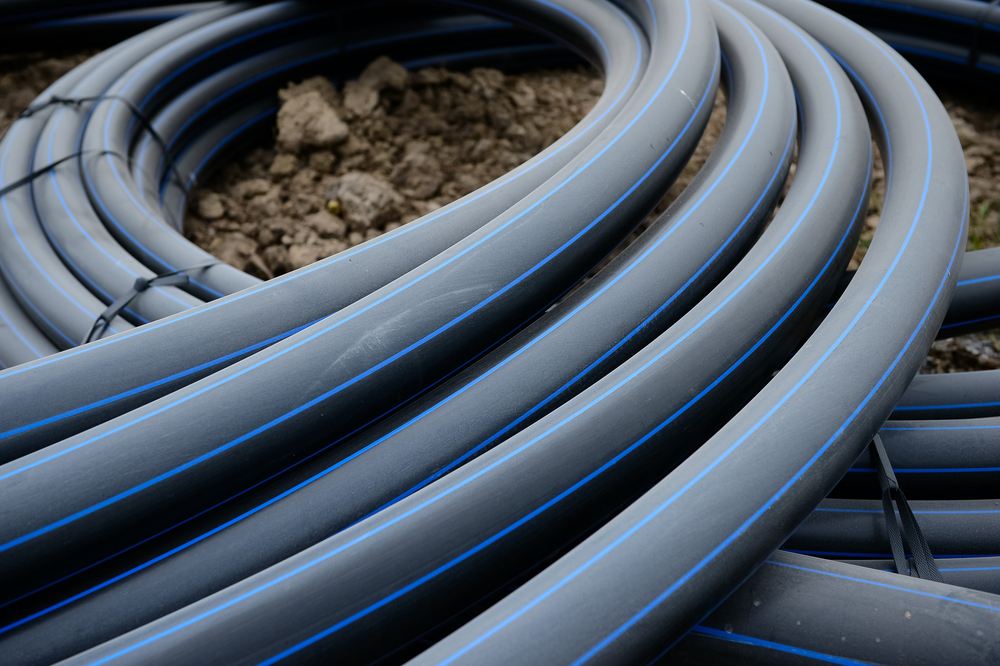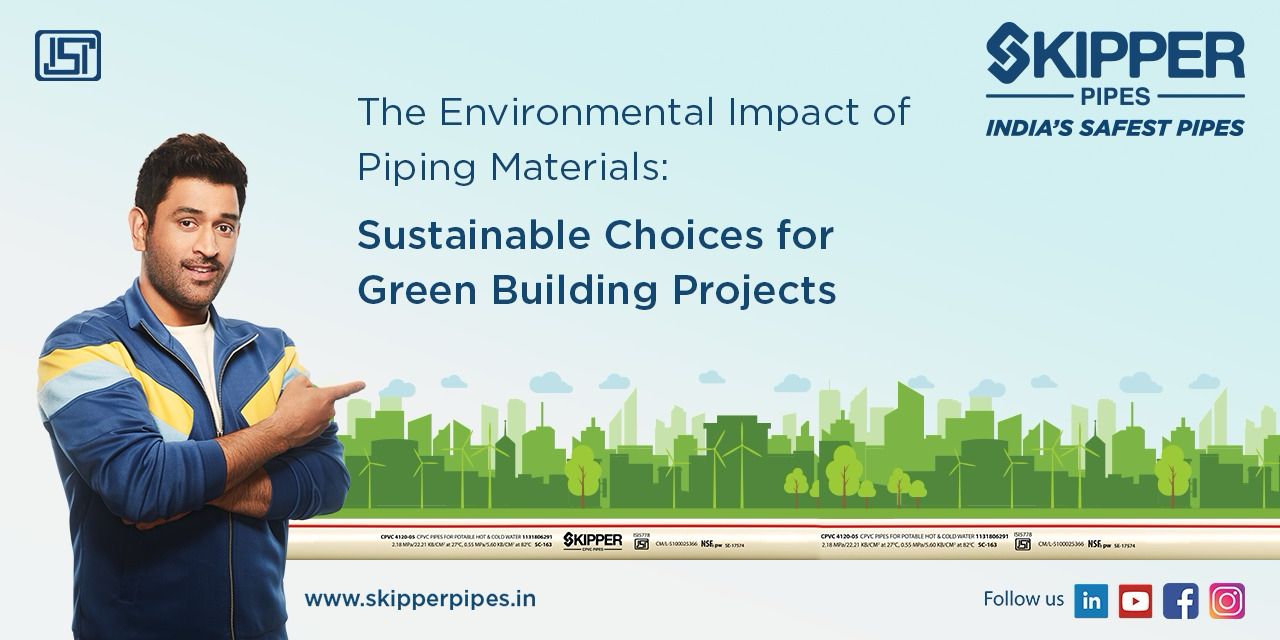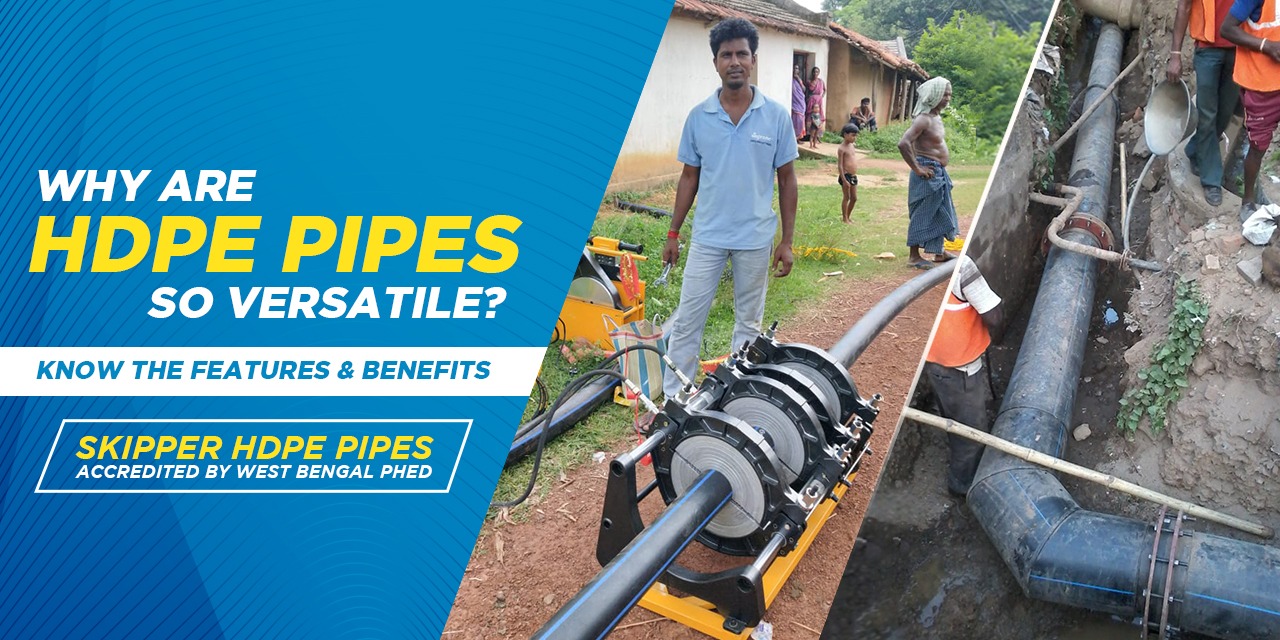HDPE pipes are widely used for industrial applications such as transportation of industrial water, coal handling in mines, chemical lines, agricultural and lift irrigation and underwater pipelines and desalination plants. HDPE pipes owe their popularity to characteristics such as high tensile strength, durability and lightweight. As one of the leading HDPE pipe manufacturers, we share with you insights on what makes HDPE pipes favourable for industrial applications:
Excellent resistance to corrosion:
Traditionally, metal pipes were used for industrial applications. However, rusting made it a poor choice. HDPE pipes are a better alternative to metal pipes for carrying water and low temperatures liquids. Its corrosion resistance properties make it an attractive option for various industrial applications in chemical and geothermal plants.
Chemical resistance:
In many industries, metal pipes such as carbon steel pipes are being replaced with HDPE pipes. The superior resistance to various chemicals makes it ideal for fluid and gas piping systems such as gas mains, sewer mains and fire system supply lines. Besides, offering brilliant chemical resistance, HDPE pipes are also unaffected by fungi and bacteria.
Excellent resistance to water hammers:
Sudden change in the flow rate of water can cause very high pressures in pipes. It can cause the pipes to burst or joints to crack. But this isn’t the cause with HDPE pipes. They can withstand water hammers making them durable in the long run. This eliminates the chances of breakage.
Excellent Weldability:
HDPE pipes are fused together to form a strong, homogenous joint. The pipes have excellent weldability which makes them reliable and easy to install when compared to traditional pipe materials. Proper welding ensures that they are leak-proof and do not require too many fittings.
Low installation costs:
There are several economic advantages of using HDPE pipes that are encouraging industries to shift to HDPE pipes for long-term use. Installation of HDPE pipes involves cheap methods such as horizontal directional drilling and slip lining. At the time of installation, there is no need for heavy lifting equipment as HDPE pipes are lightweight. This allows for huge savings in labour and installation.
Low maintenance:
As HDPE pipes are corrosion and chemical resistant, there are fewer chances of leaks and thus they do not require frequent maintenance. This means long-term maintenance cost savings.
Easy handling:
Thanks to their flexibility, HDPE pipes can be easily bent without the need for additional fittings. This is one of the reasons why HDPE pipes can be installed easily even in difficult terrains.
High flow characteristics:
As HDPE is smoother than steel, cast iron and other metal pipes, HDPE pipes ensure a high flow rate. Its superior chemical resistance and non-stick surface eliminate scaling and pitting, ensuring an excellent flow rate throughout the pipe service life.
HDPE pipes are an excellent choice for diverse applications. Now that you know the advantages of high-quality HDPE pipes, you can rely on them for various industrial applications. If you are planning to buy high-quality HDPE pipes, then you must look for reputed HDPE pipe manufacturers. Check out our wide range of HDPE pipes that are a safe, durable and cost-effective solution for industrial applications. Our raw materials and finished goods meet the quality standards as per IS:4984-2016.




0 Comments